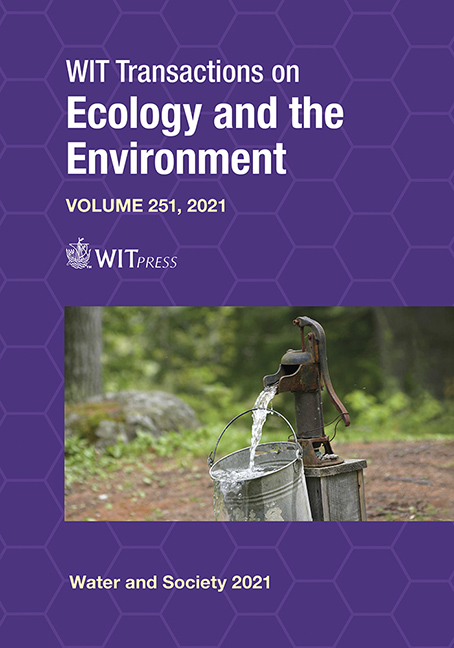REDUCTION OF CARBON EMISSIONS IN A MEDITERRANEAN URBAN WASTEWATER TREATMENT PLANT
Price
Free (open access)
Transaction
Volume
251
Pages
8
Page Range
87 - 94
Published
2021
Size
715 kb
Paper DOI
10.2495/WS210091
Copyright
Author(s)
MANUELA MOREIRA DA SILVA, LUÍS CRISTOVÃO, DUARTE MARINHO, EDUARDO ESTEVES, GIL FRAQUEZA, ANTÓNIO MARTINS
Abstract
In the last few decades, with the rapid growth of population, and more than half of them living in cities, the urban wastewater treatment has become a big challenge that consumes many resources, namely energy. In a climate change scenario, the Mediterranean region is facing more frequent water scarcity periods, and urban water reuse can be a solution, at least for supplying some non-potable water uses. In this context, the performance of urban wastewater treatment plants (WWTP) is of utter importance, to produce environmentally safe treated water while reducing energy consumption and carbon emissions (CE). Activated sludge is the biological process most widely used in wastewater treatment and requires aeration systems in order to promote the oxidation of organic matter and ammonia. It is known that the energy consumed in the aeration processes is of major importance for the global WWTP CE. This study was carried out in a WWTP in southern Portugal, wherein an aeration control system that responds in real time to ammonia and nitrate concentrations was tested. The system is set to optimize the duration of the aerated and non-aerated periods, for nitrification and denitrification. During the experimental period, BOD, COD, Escherichia coli, TN and TP were monitored in the treated effluent, in order to verify the quality standards that allow its reuse. The aeration control system contributed to a decrease of about 13% of the specific energy consumption, when compared with the corresponding period in previous years, representing a CE reduction of about 1.2 t CO2 eq, during the experimental period. The treated effluent maintained its high quality standards and can be used, for example, in agricultural irrigation of local crops. Aeration control systems reacting in real time can have an important role to decrease CE of urban WWTPs; however, further research is needed, including more WWTPs and analyzing seasonal variations in energy consumption over the year.
Keywords
urban wastewater treatment, aeration control, energy, carbon emissions, water reuse





